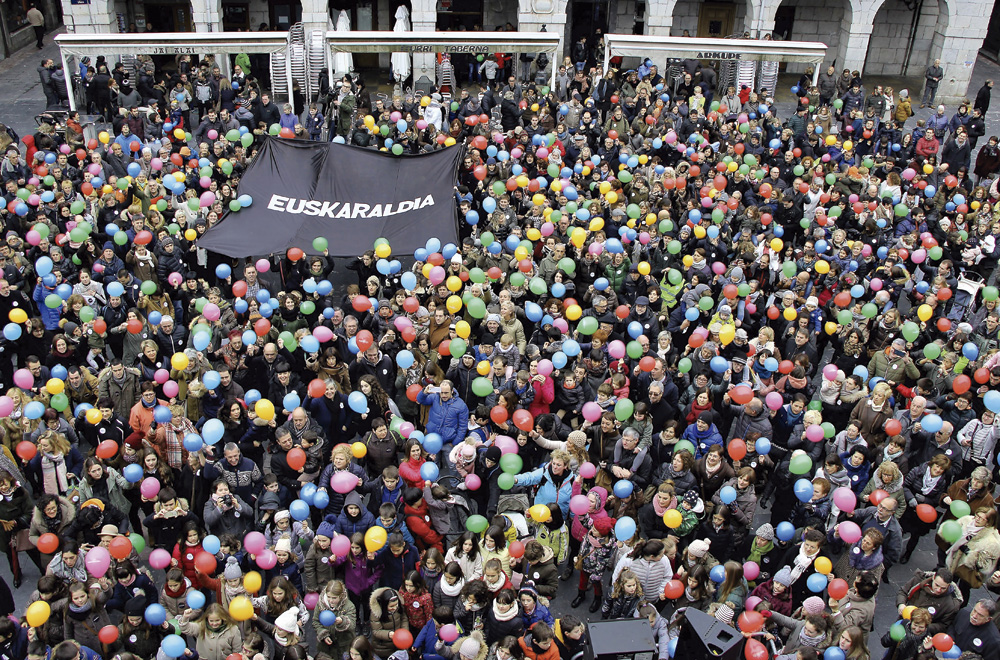
- from 23 November to 3 December 2018. A total of 225,154 people participated in the largest social exercise performed to change language habits. Euskaraldia has just presented the results. 18,383 citizens have responded to the three questionnaires provided by the organisation of the test. Before Euskaraldia and if we look at the difference in the days that Euskaraldia lasted, the use of Euskera increased considerably. Three months later, the use decreased considerably, but always above the results of the first measurement.

The main conclusion is that, through the initiative, many citizens change their language habits and use the Basque language more in their daily lives. At least 18,383 participants said so. Many have said that they were given too short an exercise, which is eleven days less to change customs.
Some, however, have changed more than others, such as those who have less ability to speak in Basque, those who have less habit of speaking in Basque and those who live in more Castilian socio-linguistic areas. No similar changes have been made by those who claim to have a high level of Euskera; those who before Euskaraldia talked a lot about Euskera; and those who live in Euskaldunes socio-linguistic areas.
The greatest change has been produced by vasco-receptors, that is, those who, despite the difficulties to speak, have dared to be drowning. In the second position classification it has been the vasc receptors of belarriprest, that is, those who have not been able to speak, but they do understand. In third place are the Euskaldunes Belarriprest, who have completed the podium in the Second Division. These have no trouble understanding and speaking in Basque, so they decided to be belarriprest. The least change of language has occurred in the case of drowning Euskaldunoss, that is, those who have the ability to speak well in Basque.
According to the answers provided by the citizens who participated in the study, and in particular by the ahobizi, they mentioned the value of the identifiable sheets, which have felt an impulse to speak in Basque with all those who understand Basque. On the other hand, many participants have pointed out that the fact that the previous ones were carried out in Basque has made them feel the need to respond in Basque.
According to the evaluation of the research carried out, Euskaraldia has served to create an environment of support and openness to citizenship. The one who wanted to speak in Basque has noticed the social legitimacy to speak in Basque calmly and has served to shake the laziness of speaking in Basque. The one who was ashamed or afraid to speak in Basque has been done with courage. The option of using Spanish has served as a self-regulating tool for those who had difficulty speaking in Basque.
Many Euskaraldia has served to have a more realistic view of linguistic practices. Some have realized that in daily life they speak less than they think, others have recognized that the practices they thought were fairly easy, like bilingual conversations, are more complicated than they imagined, and others have been glad to find more people than they imagine they understand or speak in Basque.
Weaknesses
We will list the highlights: the message has been limited to the “Basque world”; instead of focusing on the use of the Basque country, it has been represented as a celebration of support for the Basque country; the functions of the Belarriprest and Ahobizi roles have not been sufficiently explained; although the major institutions have supported the initiative, they have taken few steps in the use of the language. More specific barriers detected: it has been difficult to maintain linguistic requirements; the lower level of the interlocutor's language decreases the desire to continue in Basque; the pre-established language change between the interlocutors is difficult.
